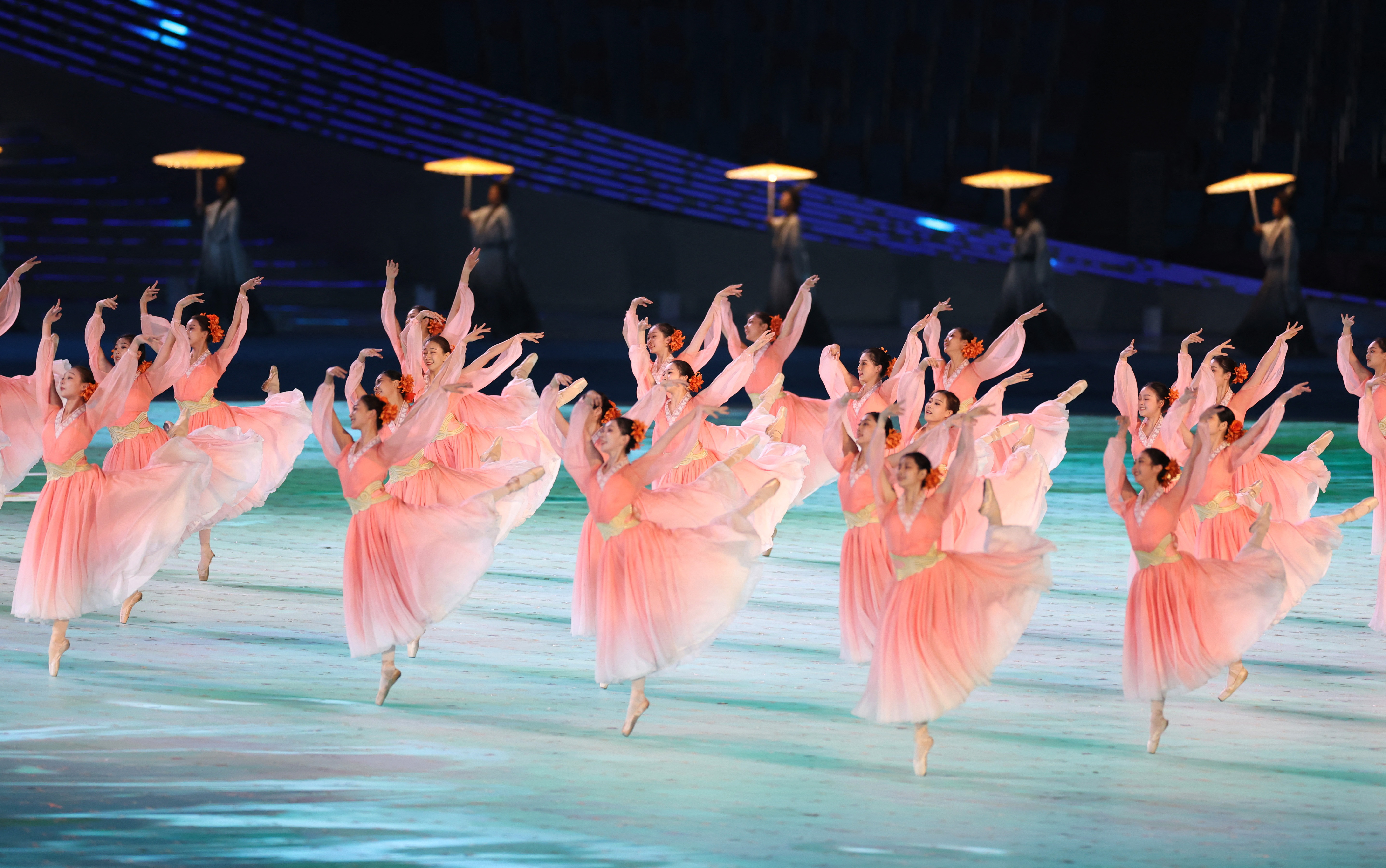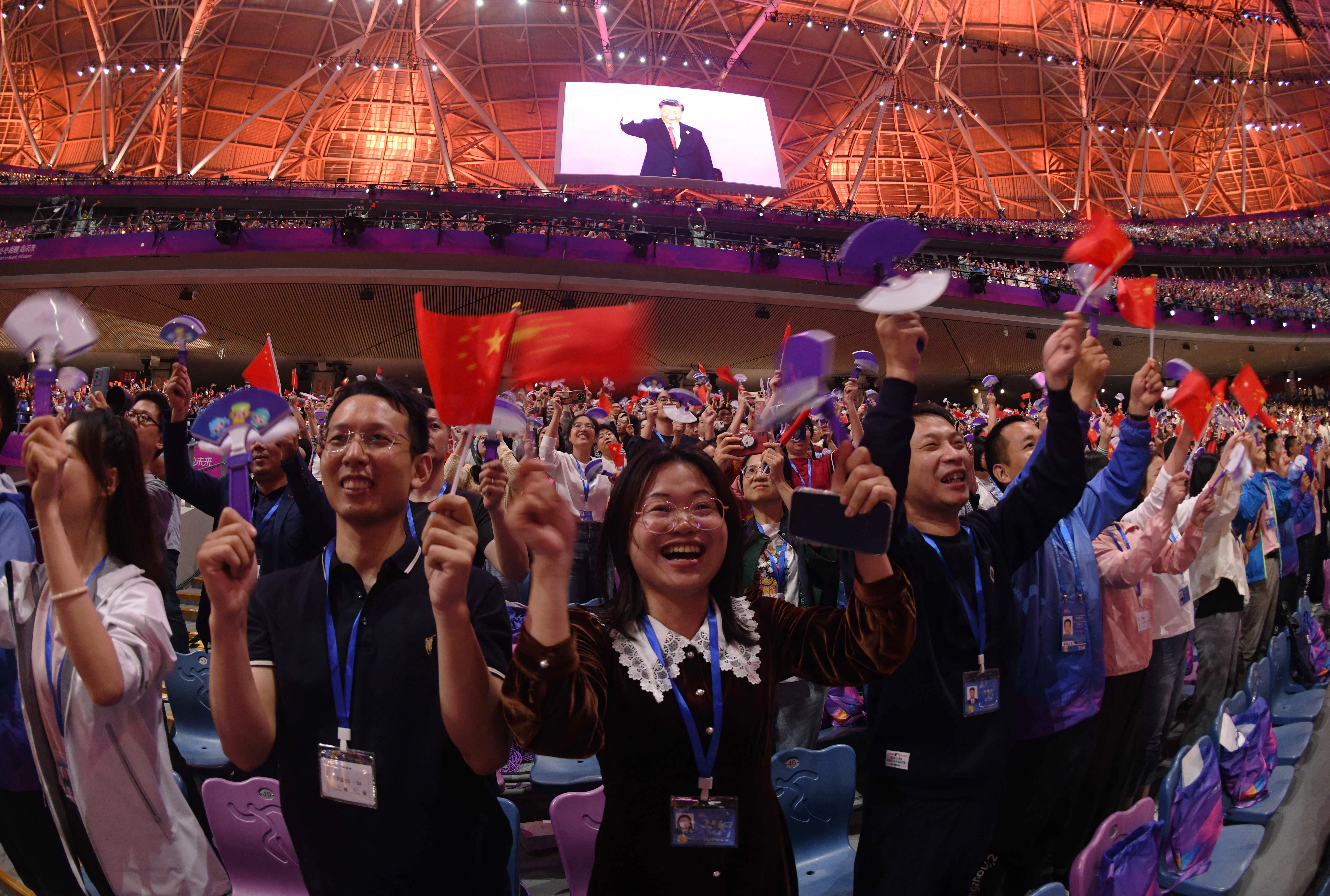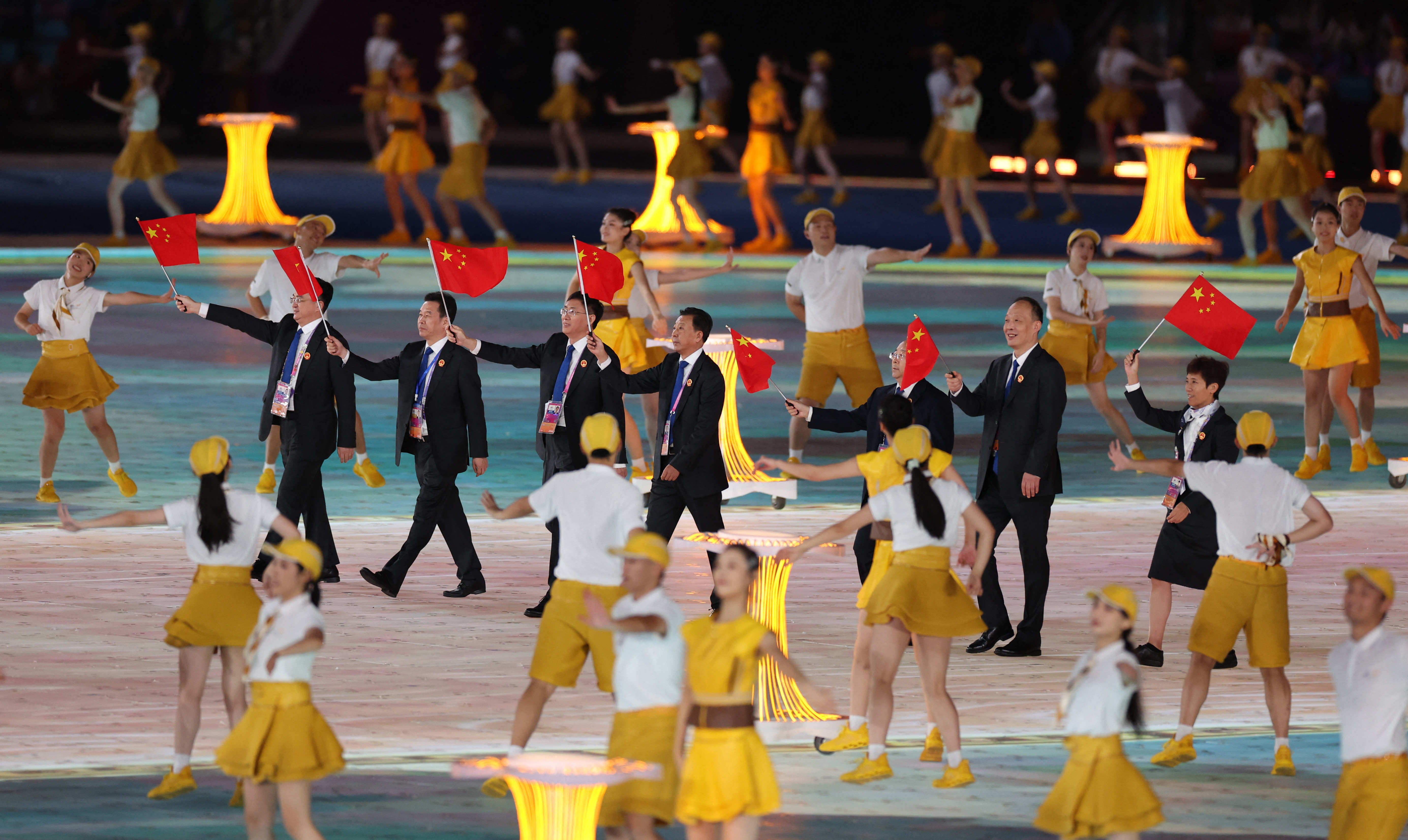
Chinese President Xi Jinping has opened the COVID-19 delayed 19th Asian Games on Saturday in the Eastern city of Hangzhou during a shiny and at times, raucous opening ceremony.
Spectators in the city’s 80,000-capacity stadium let out a huge roar on Saturday as Xi was introduced and walked in to sit with visiting dignitaries including International Olympic Committee President Thomas Bach and Syrian President Bashar al-Assad.
“I declare the Hangzhou 19th Asian Games open,” Xi said.
The Games, delayed a year due to China’s measures to combat the COVID-19 pandemic, will be the country’s biggest sporting event in more than a decade in several metrics, with approximately 12,000 athletes from 45 nations competing in 40 sports.
The Games will be held in 56 venues, out of which 12 have been newly built.

Al-Assad, on his first visit to ally China since the civil war erupted in Syria in 2011, stood up and applauded as his country’s team entered the arena and the crowd cheered when his image flashed up on a big screen.
Thomas Bach, President of the International Olympic Committee was also among the dignitaries – and leaders from Cambodia, Kuwait and Nepal, among others, had all been expected to attend.
“Finally, we can gather for the 19th Asian Games,” Raja Randhir Singh, acting president of the Olympic Council of Asia, told the crowd to more cheers.
“The one-year postponement was unprecedented in OCA history,” he added.
The Games were delayed a year due to China’s now-abandoned zero-COVID policy.
‘Very happy’
Security was tight in the area around the arena in the hours leading up to the ceremony, with roads closed and police stationed on street corners.
Spectators were given thorough security checks before entering and staff confiscated food and umbrellas. The light rainfall in recent days had stopped.
The theme of the ceremony was water and it also celebrated Hangzhou’s ancient history and landscape, while also giving a nod to the city’s reputation as the unofficial home of China’s tech industry.

“I feel very happy and excited,” a 35-year-old woman spectator surnamed Zhang said, according to the AFP news agency.
“I feel it’s a great honour for the city.”
Jung-Woo Lee, sport policy expert at the University of Edinburgh, told AFP the Games were “China’s post-pandemic soft-power exercise”.
However, controversy has already struck the multi-sport event with a row between New Delhi and China over three Indian wushu fighters, with a trip to the city by India’s sport minister cancelled on Friday.
China denied Indian claims that the trio had been barred from entering the country.
While the schedule includes the more traditional events such as athletics and swimming, it will also feature sepak takraw, or kick volleyball; kabaddi, a mixture of team tag and wrestling; and wushu, a martial art, reflecting Asia’s diverse sporting culture.
Meanwhile, e-sports, breakdancing and sport climbing will be making their Games debut, in an effort to attract the interest of younger people.







